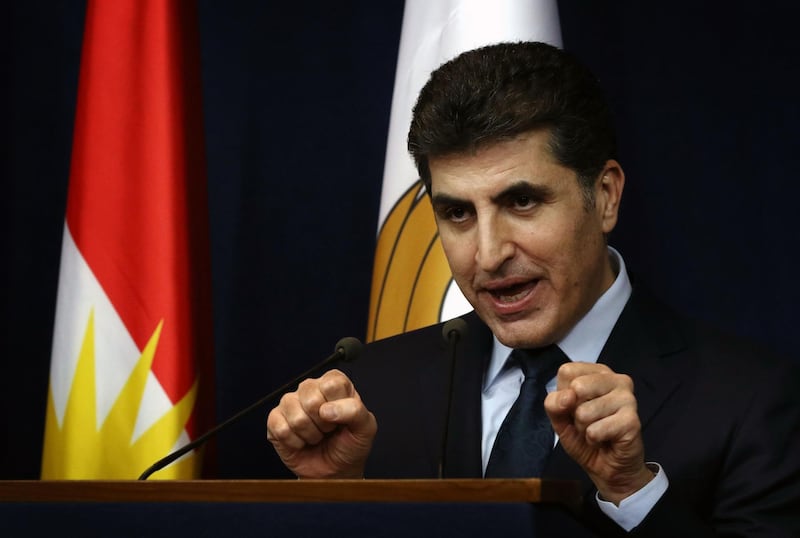The Kurdistan Regional Government said on Tuesday it would respect a ruling by Iraq's federal court that prohibits its push for independence.
The court's decision earlier this month came after Iraqi Kurds overwhelmingly voted in favour of independence in a non-binding referendum on September 25 that was slammed as illegal by the central Iraqi government as well as by neighbouring Turkey and Iran.
The KRG, which governs Iraq's autonomous Kurdish region, said in a statement it would "respect the November 6 ruling by the supreme federal court" which declared that no Iraqi province could secede from Baghdad.
“We believe that this decision must become a basis for starting an inclusive national dialogue between Erbil (the capital of Iraqi Kurdistan) and Baghdad to resolve all disputes,” the KRG added.
______________
Read more:
[ Iraqi prime minister sets election date for May 15 ]
[ Eight Turkish troops killed in clashes with Kurdish militants ]
[ Iraq troops deploy to one of main crossings with Turkey in Kurdish region ]
______________
Dialogue between the two sides will be implemented through the Iraqi constitution in a way that "guarantees all rights, authorities and status, since this is the only way to secure the unity of Iraq", it said.
The federal court is responsible for settling disputes between Iraq’s central government and the country's regions and provinces. Its decisions cannot be appealed, though it has no mechanism to enforce its ruling in the Kurdish region.
Following the Kurdish bid for independence, Baghdad halted international flights in and out of the autonomous region — known as Iraqi Kurdistan — and launched a military operation that recaptured the oil-rich city of Kirkuk and other disputed areas from Kurdish forces. These areas lie outside of the Kurdish region and are claimed by both Erbil and Baghdad.
Iraq also unleashed a legal barrage against Kurdish officials and sought to seize key Kurdish businesses, while neighbouring Turkey and Iran have threatened to close their borders with the autonomous region to oil exports.
US president Donald Trump's special envoy to the anti-ISIL coalition, Brett McGurk, on Tuesday praised Erbil's efforts in trying to resolve the dispute.
Important: Clear #KRG statement respecting Iraqi Supreme Court's recent decision interpreting Article 1 of the Iraqi constitution and calling for dialogue to resolve all disputes on the basis of the constitution. https://t.co/KJKeH8g1fl?amp=1
— Brett McGurk (@brett_mcgurk) November 14, 2017
The US has backed Kurdish forces fighting ISIL in both Iraq and Syria.
The KRG statement on Tuesday came a day after Kurdish prime minister Nechirvan Barzani urged Baghdad to respond to Erbil's calls for dialogue and called on the United States to find a neutral ground in resolving the dispute.
Iraqi prime minister Haider Al Abadi had previously urged Erbil to abide by the federal court's November 6 decision in order for negotiations between the two sides to start.
But on Monday, Mr Barzani accused Baghdad of attempting to abolish the Kurdish region and "rejecting calls for dialogue".
"Baghdad has not responded to Erbil’s proposals for dialogue", he said, calling on officials in the central government "to resolve all problems through the constitution".
Mr Barzani meanwhile accused the US of supporting "Baghdad instead of being a mediator between its two allies".
He urged Washington to "balance its relations with the two sides and to set the stage for constructive dialogue".






